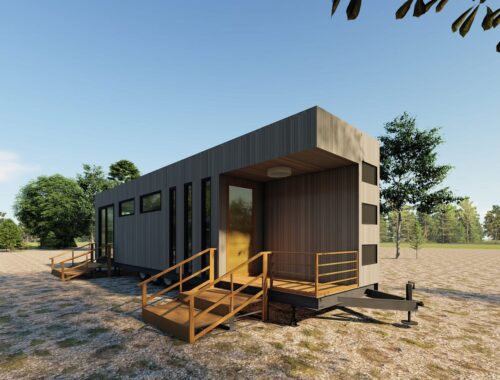America’s 10 Most Eco-Friendly Ski Resorts
These mountains do way more than just recycle
With sprawling mountainside villages, water-guzzling snow machines, and high-powered chairlifts, it’s no secret operating a ski resort can be a dirty business. But in recent years, mountains around the country have started taking steps to reduce their environmental footprints by switching to renewable energy, banning single-use plastics, upgrading to water-saving snowmaking machines, and incentivizing skiers to arrive by public transportation, electric cars, or carpools. Which is all right and good, but is it enough?
To find out which U.S. ski resorts are really pushing the needle, environmentally speaking, we asked sustainability experts from organizations like Protect Our Winters, the National Ski Areas Association, and Stoke Certified for their picks. If you want to spend your dollars at a resort that’s truly making an impact, these ten spots pass the test.
Aspen Snowmass
Colorado
Aspen Skiing Company has long been a leader for its climate change advocacy and forward-thinking environmental operations. On the ground, the company captures waste methane from a local coal mine to generate carbon-negative electricity to help power the resort and built industry-leading solar arrays and LEED-certified mountaintop restaurants. This year, along with sister company Alterra and Protect Our Winters, Aspen was a strong advocate for electric services company Xcel Energy’s plan to close two Colorado coal plants and replace them with wind and solar, a move that will increase the percentage of renewable energy in the state from 29 to 55 by 2026.
Diamond Peak
Nevada
This 655-acre community-owned ski area on Lake Tahoe’s North Shore recently became one of the first mountains in the country to receive a Stoke certification, a new sustainability accreditation for the ski and surf tourism industries. How? Free shuttles from town to the slopes, electric vehicle charging stations, water bottle filling stations, a children’s coloring book featuring plants and animals native to the resort, and millions of dollars of investment into local watershed restoration. Plus, the resort hopes to run entirely on renewable energy by next year.
Sugarbush
Vermont
Sugarbush has done a lot of little things—and they all add up. The resort installed 15 electric vehicle charging stations, built a solar array that supplies power to the local grid, and upgraded its snowmaking system to reduce energy usage by 24 percent. The mountain also hired “trash talkers” to stand at garbage cans throughout the main lodge and help guests separate trash, compost, and recycling into the proper bins.
Arapahoe Basin
Colorado
Mike Nathan, A-Basin’s sustainability manager, recently testified in front of Colorado’s Air Quality Control Commission about the need to increase electric vehicles usage. The ski area is part of a contingent of resorts working with the High Country Conservation Center and Xcel Energy to develop a countywide energy reduction plan. The resort also matches employee contributions to an environmental fund that contributes to local land conservation efforts. In 2017, it installed a second solar array that generates nearly all the power needed by the summit lodge and ski patrol headquarters building.
Snowbird
Utah
On the mountain, Snowbird has taken steps to reduce the waste generated by its lodges. This winter, it’s releasing a new carpooling app to further its mission to improve local air quality by promoting ridesharing and public transportation and discouraging vehicle idling. Exhaust from the Cliff Lodge’s power plant is converted to steam that heats the lodge’s hotel rooms and swimming pool. Off the mountain, the resort recently sent delegates to Washington, D.C., to lobby Capitol Hill for climate change policy, and the resort has submitted signed statements to Utah’s Public Service Commission advocating for more renewable energy.
Berkshire East
Massachusetts
Berkshire East, a 180-acre family-owned ski area in western Massachusetts, is one of a few resorts in the world that generates all of its electricity from on-site renewable energy sources, thanks to a wind turbine and solar field. Expanding on this, the ski area recently received a grant to work with the local utility company to construct a microgrid battery system that’ll store the excess energy it generates. Old snowmaking equipment has been ungraded with energy-efficient guns, and the heating system is currently being updated to use environmentally friendly biomass.
Eldora Mountain Resort
Colorado
POWDR Corp bought Eldora, a 680-acre ski area just up the hill from Boulder, Colorado, in 2016 and set about revamping the ski area’s sustainability cred by committing it to regionwide energy conservation programs and the We Are Still In campaign, which shows support for the Paris Climate Agreement by helping companies, organizations, and local governments undertake positive climate actions.
Taos Ski Valley
New Mexico
In 2017, Taos Ski Valley became the first ski resort in the world designated as a B Corp, a strict certification process that measures a for-profit company’s social and environmental performance, ranging from employee benefits to energy and waste reduction. Taos, which is privately owned by conservationist and hedge fund manager Louis Bacon, has set a goal of reducing greenhouse gas emissions by 20 percent by 2020. To achieve that, the resort upgraded the snowmaking machines, added electric vehicles to its fleet, and built a geothermal heating and cooling system for the Blake, the newly built base hotel just steps from the new high-speed quad lift.
Crystal Mountain
Michigan
This year, the National Ski Areas Association awarded Crystal Mountain in Traverse City, Michigan, its Climate Change Impact Award for the mountain’s advocacy of and investment in clean energy. Crystal Mountain was the first ski area in the state to install electric vehicle charging stations. It’s home to the first LEED-certified spa in the Midwest, and it recently outfitted its hotel with geothermal energy. The resort also lobbied the local utility company to get more renewables on the grid.
Squaw Valley Alpine Meadows
California
Squaw Valley is in the midst of planning a massive base-area overhaul, and while that may not be particularly low impact, it’s doing innovative work on the mountain. Last winter, Squaw announced plans to team up with Tesla and the local utility company to build a battery system to store solar power that will serve the resort and local residents in the event of an outage. The resort also plans to be powered entirely with renewable electricity by the end of this year.
You May Also Like

ユニットハウスのメリットとデメリットを徹底解説
March 20, 2025
AI in Fashion: Revolutionizing Design, Sustainability, and Shopping Experiences
February 28, 2025